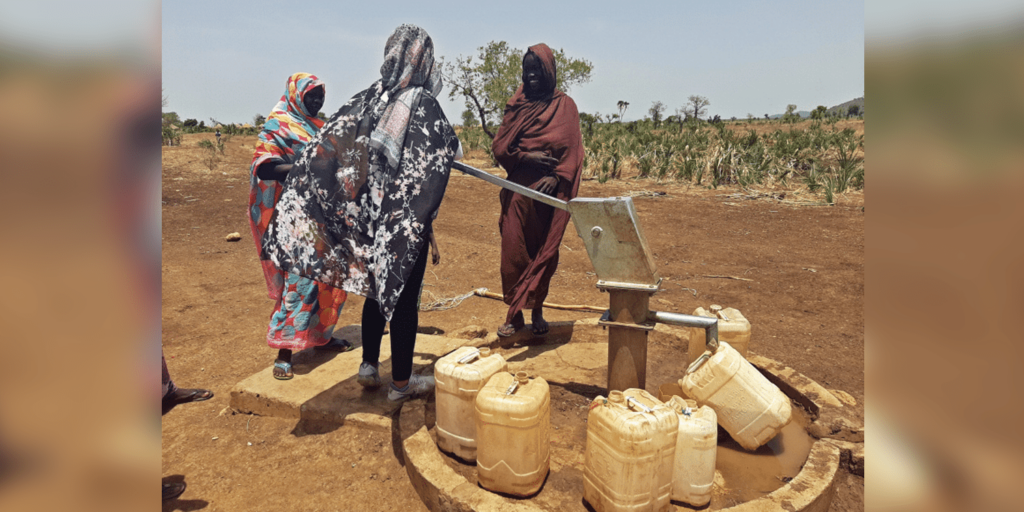Water Is More than Survival
ADRA Canada is working in partnership to ensure the human right to water in Sudan.
March 19, 2023 | Canada | Heather Grbic, ADRA Canada
The 30th annual World Water Day is coming on March 22. Ever since the Adventist Development and Relief Agency (ADRA) was established, ADRA Canada has worked with communities to ensure the human right to water, including in Sudan.
The Blue Nile State in Sudan is considered home to that country’s greatest humanitarian needs. Instability harms basic services like water, sanitation, and hygiene (WASH). Women are responsible for finding the water their families need to survive. They may face danger and sexual violence in the process.
The response of ADRA, with funding from the government of Canada, includes rehabilitating water points that provide safe water. But they mean more than that. A woman named Maryam explains.

In Sudan, safe water points provide clean water while also offering protection to women and more free time for them to pursue opportunities. [Photo: ADRA Canada]
“A man who carries water is no longer regarded as a man in the community, but rather as his wife’s slave. As a result, women are forced to carry two 36-pound (16 kg) jerry cans on their shoulders, causing deformity and discomfort to their bodies. This is especially bad when you’re pregnant.
“Furthermore, girls used to be subjected to rape while carrying out these tasks. We can now get to the rehabilitated water point in 10 minutes. Our workload has been reduced. We now have more time to care for our children, some free time for ourselves, and clean and safe drinking water to keep our children healthy.”
Accessible water enables girls to return to school and reduces risks of rape and other violence. The project adds further support with the construction of school and health center latrines.
And there’s more. Communities take ownership of the water points through water committees, which include women who now participate in discussing community concerns. Water becomes an entry point to empower women and address gender equality issues.
The project also trains water technicians. One of them shares her story:
“I dropped out of school as a child because of early forced marriage. I’ve always wanted to work on something technical since I was a child, and thanks to God, I now have the chance. I was taught how to fix a hand pump and found it fascinating. I’m delighted to volunteer in making the project a success. Being a technician gave me a level of respect and authority that challenged traditional gender roles. When we think of a water technician, the first thing that comes to mind is a man.
“Despite having additional household work at home, I prioritized the project because I understand what it is like to live without clean and safe water. I also committed myself to serve the project even after the EWASAP II project phased out, because the project is ours.
“Some women had limited time to attend meetings or volunteer, and others have to obtain permission from their husbands to serve in the committees. Things are changing now. Nonetheless, we look forward to more gender equality training for men as well as women.”
“Water plays an important role in improving wellbeing, especially for women. But women are also crucial in guaranteeing water service sustainability,” ADRA Canada leaders said. “Water is life. It ensures survival. It also contributes directly to quality of life, safety, and opportunities. Thank you for making work like this possible!”
The original version of this story appeared in the March 2023 issue of Canadian Adventist Messenger.